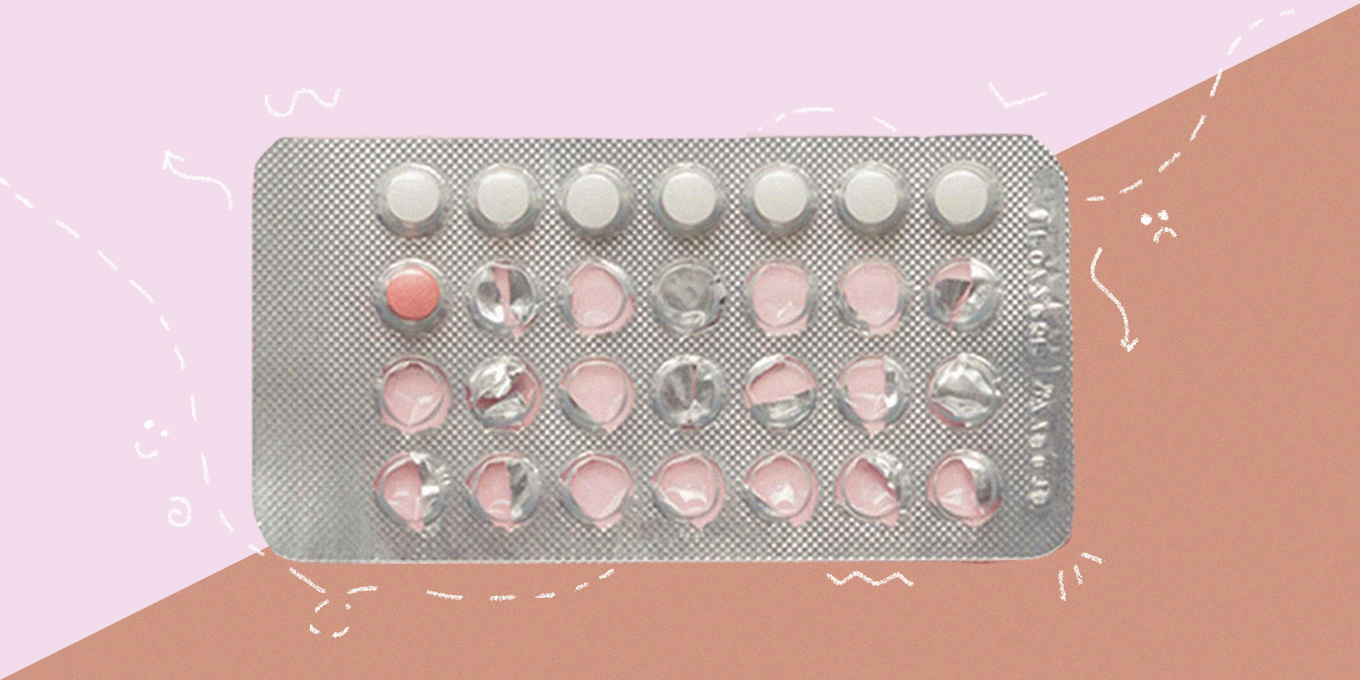Health & Fitness
Could the Birth Control Pill Be Messing With Your Mind?
A new Canadian study links oral contraceptives with structural changes in the brain.
by : Wing Sze Tang- Jul 31st, 2020

Here’s a bit of weird health history: In Canada, doctors couldn’t legally prescribe the birth control pill for birth control until 1969 (officially it was allowed only as a treatment for irregular periods). Once access was relaxed, the demand was clear: Oral contraceptives are now the most common method of reversible contraception, a 2015 Statistics Canada report found. In the survey, nearly 30 percent of women aged 15-24 were on the pill.
But despite the drug’s decades-long history and popularity, we know surprisingly little about how the synthetic hormones inside affect brain structure and function – particularly if we start taking them early, during puberty/adolescence – according to Dr. Andra Smith, PhD, neuroscientist and professor of psychology at the University of Ottawa. She’s one of the authors of a new study on this very subject, which may provide clues to why some women develop mood disorders, such as anxiety and depression, after taking oral contraceptives.
We spoke with Dr. Smith about the findings, published in the journal Hormones and Behavior – and just how concerned we should be.
Can you provide a bit of context: What we do currently know about women developing mood disorders after taking the pill?
We don’t know enough. That’s why we were interested in the topic. With such an increase in [the prevalence of] youth anxiety and depression and other mental illnesses, I think it’s really important to look at all aspects of women’s health. We don’t know what the link is. With this study, we’re trying to increase awareness that [oral contraceptive use] might contribute.
Birth control pills have been around for so long. Why don’t we know more about what kind of effects the hormones have, behaviourally and otherwise?
I think because they’re effective in doing what they’re meant to do. And the link between the brain and the rest of the body, and the brain and mental health, has only come about in the past 20 or 10 years. And oral contraceptives have been around for more than 60 years.
What was the focus of your study?
Our main interest was if you start taking the pill at an early age [i.e. during puberty] – while the brain is still going through critical stages of development – are those synthetic hormones going to impact that development?
How did you go about trying to find out?
We used two methods. One was a stress test, called the Trier Social Stress Test, and my part involved brain imaging, with functional MRI and structural MRI. We used a task in fMRI to access emotional working memory: We showed the women pictures of negative, neutral and positive emotional content and asked them to perform a memory test.
fMRI is like a window into the working brain. So we were able to see how it was working while they were processing memories of the pictures. And we saw they were working a bit differently for the women who were on contraceptives, and we also saw a difference between those who started on the pill early [during puberty] versus later [during adulthood].
Can you elaborate on the differences?
The women on oral contraceptives processed the negative images [for example, a picture of a car accident] a bit more than the non-users did. What does that mean, when you have this increase in activity? It can mean those images were having a more significant impact on them. And perhaps that is a mechanism for negative mental health issues. That was probably the most significant result.
With respect to the stress test and the early-onset users [those who started the pill in puberty], they had a blunted stress response. [People] need to have a cortisol response to stress – otherwise your body and brain are not responding to stress appropriately. What a reduced response suggests is the body is not going to be able to cope with stress as well.
Do we have any idea whether the brain changes associated with oral contraceptives will go away if someone stops taking them?
We don’t have the answer to that, but if I had to go out on a limb, I would say absolutely. Our brains are very dynamic and do have this ability for neural plasticity, particularly in those who are young.
The study’s goal is not to discourage women from taking oral contraceptives, but I think readers will naturally hesitate to take a drug linked with structural changes in the brain. Why shouldn’t we be worried?
I don’t think you should be worried about it. I think you should just be aware of the fact that this is a synthetic hormone that’s altering your body and your brain. If you’re making a decision to do this, it should be an informed decision. And obviously there are benefits to it, and if the benefits outweigh this possibility, that’s great.
I’m a neuroscientist, and my specialty is the developing brain. I talk about cannabis and the developing brain. And I often say, I don’t care if you smoke pot when you’re 30. But don’t do it when you’re 13. And I have that same sort of feeling about this. You need to be aware, and that’s for the medical profession as well – I’ve given this study to my GP. And I’m hoping she’ll think twice about giving a 13-year-old oral contraceptives if there are any alternatives, and if there’s any sort of predisposition to a mood disorder.
If you had a daughter who’s 13, you would advise her not to take birth control pills?
Yes. I have a 15-year-old. That said, if she were having debilitating menstrual cramps, and that was the only answer, I might consider it. But I would try everything else first.
And for a woman in her 20s, you would be less worried?
Yes. But there’s still a link with the brain, which needs to be taken into account, particularly if a woman is showing signs of depression or anxiety.
If a woman on the pill is indeed experiencing a mood disorder, should she stop the oral contraceptives?
I would say, don’t stop – but absolutely go see your doctor.
READ MORE:
The Best Virtual Healthcare Options In Canada
17 Years After Getting Breast Implants, I Wanted Them Out
What We’re Really Talking About When We’re Talking About Adele’s Weight Loss
Newsletter
Join our mailing list for the latest and biggest in fashion trends, beauty, culture and celebrity.
Read Next

Beauty
10 Luxe Household Scents That Smell Amazing
Including Diptyque dishwashing liquid, Canadian-made room sprays and so much more.
by : Katherine Lalancette- Apr 17th, 2024

Beauty
10 Sustainable Beauty Brands to Know About This Earth Month
Refillable, Waterless and sustainable, oh my!
by : Allie Turner- Apr 17th, 2024

Fashion
This Jewellery Brand Has a Whole New Look And It’s Everything
Here are the seven pieces we’re coveting.
by : ELLE Canada- Apr 10th, 2024




